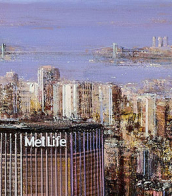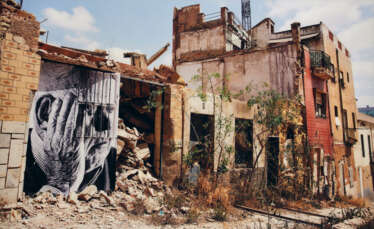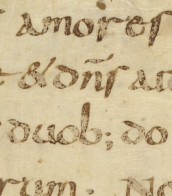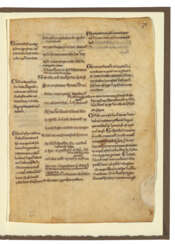жан рене (1983)
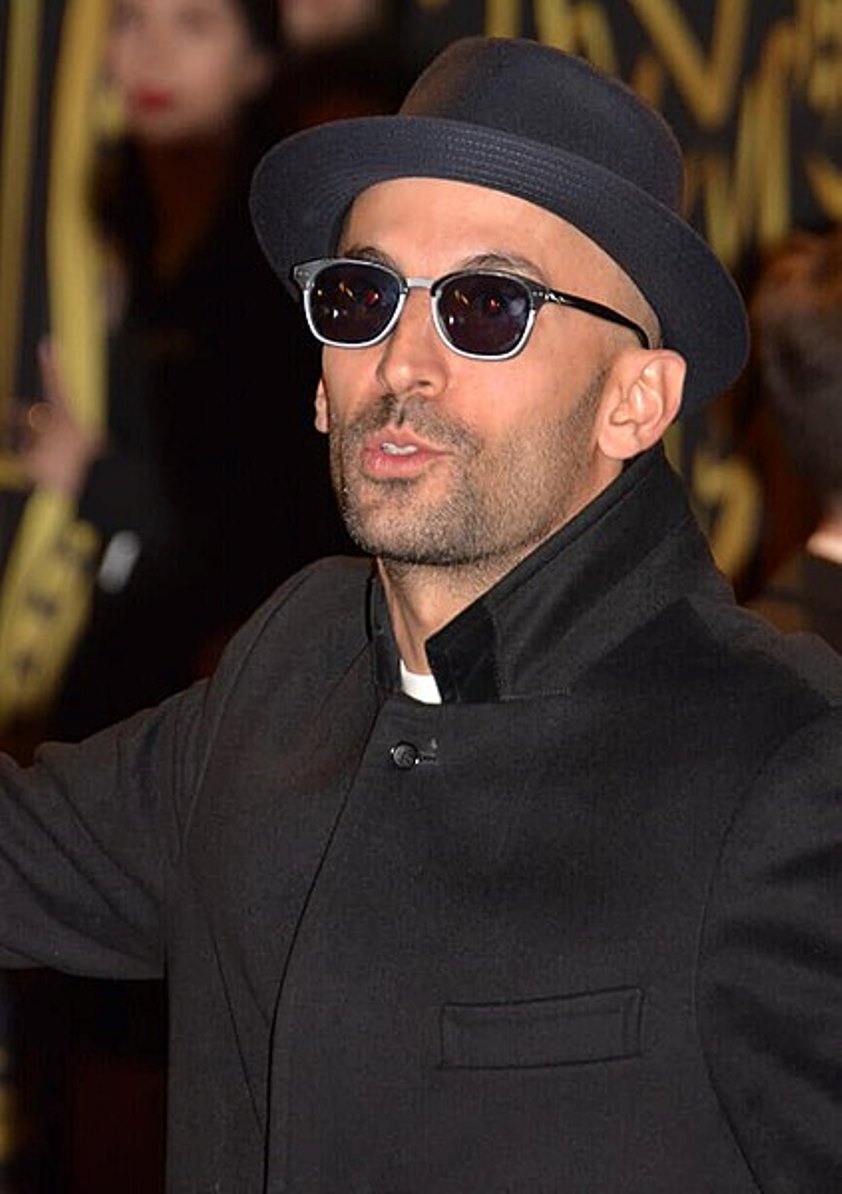
JR (French: Jean René) is the pseudonym of a French photographer and artist who does not give his full name. He lives and works in Paris and New York.
He describes himself as a "photograffeur" (photographer and graffiti artist in one word) and claims that the street is "the biggest gallery in the world". His work is flyposting large black and white images in public spaces. JR works at the intersection of photography, street art, filmmaking and social activism. Over the past two decades he has developed many public projects in cities around the world, from buildings in the slums of Paris to walls in the Middle East and Africa or favelas in Brazil.
JR places large-scale photographic images in public spaces. He started creating graffiti as a teenager on the streets and rooftops of Paris and on the subway. In 2007, he gained worldwide attention by placing huge photographs of Israelis and Palestinians face to face in eight Palestinian and Israeli cities on both sides of the separation barrier. In his works, the photographer always addresses current political and social issues in the world. For example, in 2019, JR worked with a group of inmates of a maximum security prison in California and created a large format piece with portraits of the inmates.
JR has traveled to many cities with his work, participating in exhibitions, he has collaborated with magazines and created films about his work. JR has also directed three feature-length documentaries, one of which, Women Are Heroes (2011) was nominated for an Oscar. At the 2017 Cannes Film Festival, he won the Golden Eye for Best Documentary.
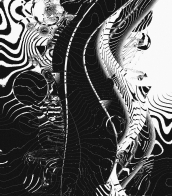

JR (French: Jean René) is the pseudonym of a French photographer and artist who does not give his full name. He lives and works in Paris and New York.
He describes himself as a "photograffeur" (photographer and graffiti artist in one word) and claims that the street is "the biggest gallery in the world". His work is flyposting large black and white images in public spaces. JR works at the intersection of photography, street art, filmmaking and social activism. Over the past two decades he has developed many public projects in cities around the world, from buildings in the slums of Paris to walls in the Middle East and Africa or favelas in Brazil.
JR places large-scale photographic images in public spaces. He started creating graffiti as a teenager on the streets and rooftops of Paris and on the subway. In 2007, he gained worldwide attention by placing huge photographs of Israelis and Palestinians face to face in eight Palestinian and Israeli cities on both sides of the separation barrier. In his works, the photographer always addresses current political and social issues in the world. For example, in 2019, JR worked with a group of inmates of a maximum security prison in California and created a large format piece with portraits of the inmates.
JR has traveled to many cities with his work, participating in exhibitions, he has collaborated with magazines and created films about his work. JR has also directed three feature-length documentaries, one of which, Women Are Heroes (2011) was nominated for an Oscar. At the 2017 Cannes Film Festival, he won the Golden Eye for Best Documentary.
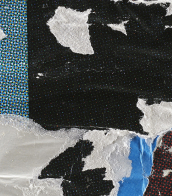

JR (French: Jean René) is the pseudonym of a French photographer and artist who does not give his full name. He lives and works in Paris and New York.
He describes himself as a "photograffeur" (photographer and graffiti artist in one word) and claims that the street is "the biggest gallery in the world". His work is flyposting large black and white images in public spaces. JR works at the intersection of photography, street art, filmmaking and social activism. Over the past two decades he has developed many public projects in cities around the world, from buildings in the slums of Paris to walls in the Middle East and Africa or favelas in Brazil.
JR places large-scale photographic images in public spaces. He started creating graffiti as a teenager on the streets and rooftops of Paris and on the subway. In 2007, he gained worldwide attention by placing huge photographs of Israelis and Palestinians face to face in eight Palestinian and Israeli cities on both sides of the separation barrier. In his works, the photographer always addresses current political and social issues in the world. For example, in 2019, JR worked with a group of inmates of a maximum security prison in California and created a large format piece with portraits of the inmates.
JR has traveled to many cities with his work, participating in exhibitions, he has collaborated with magazines and created films about his work. JR has also directed three feature-length documentaries, one of which, Women Are Heroes (2011) was nominated for an Oscar. At the 2017 Cannes Film Festival, he won the Golden Eye for Best Documentary.
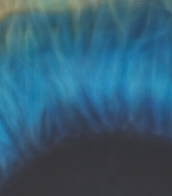

JR (French: Jean René) is the pseudonym of a French photographer and artist who does not give his full name. He lives and works in Paris and New York.
He describes himself as a "photograffeur" (photographer and graffiti artist in one word) and claims that the street is "the biggest gallery in the world". His work is flyposting large black and white images in public spaces. JR works at the intersection of photography, street art, filmmaking and social activism. Over the past two decades he has developed many public projects in cities around the world, from buildings in the slums of Paris to walls in the Middle East and Africa or favelas in Brazil.
JR places large-scale photographic images in public spaces. He started creating graffiti as a teenager on the streets and rooftops of Paris and on the subway. In 2007, he gained worldwide attention by placing huge photographs of Israelis and Palestinians face to face in eight Palestinian and Israeli cities on both sides of the separation barrier. In his works, the photographer always addresses current political and social issues in the world. For example, in 2019, JR worked with a group of inmates of a maximum security prison in California and created a large format piece with portraits of the inmates.
JR has traveled to many cities with his work, participating in exhibitions, he has collaborated with magazines and created films about his work. JR has also directed three feature-length documentaries, one of which, Women Are Heroes (2011) was nominated for an Oscar. At the 2017 Cannes Film Festival, he won the Golden Eye for Best Documentary.
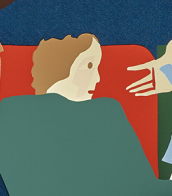

JR (French: Jean René) is the pseudonym of a French photographer and artist who does not give his full name. He lives and works in Paris and New York.
He describes himself as a "photograffeur" (photographer and graffiti artist in one word) and claims that the street is "the biggest gallery in the world". His work is flyposting large black and white images in public spaces. JR works at the intersection of photography, street art, filmmaking and social activism. Over the past two decades he has developed many public projects in cities around the world, from buildings in the slums of Paris to walls in the Middle East and Africa or favelas in Brazil.
JR places large-scale photographic images in public spaces. He started creating graffiti as a teenager on the streets and rooftops of Paris and on the subway. In 2007, he gained worldwide attention by placing huge photographs of Israelis and Palestinians face to face in eight Palestinian and Israeli cities on both sides of the separation barrier. In his works, the photographer always addresses current political and social issues in the world. For example, in 2019, JR worked with a group of inmates of a maximum security prison in California and created a large format piece with portraits of the inmates.
JR has traveled to many cities with his work, participating in exhibitions, he has collaborated with magazines and created films about his work. JR has also directed three feature-length documentaries, one of which, Women Are Heroes (2011) was nominated for an Oscar. At the 2017 Cannes Film Festival, he won the Golden Eye for Best Documentary.
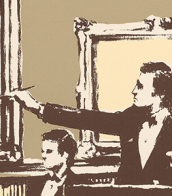

JR (French: Jean René) is the pseudonym of a French photographer and artist who does not give his full name. He lives and works in Paris and New York.
He describes himself as a "photograffeur" (photographer and graffiti artist in one word) and claims that the street is "the biggest gallery in the world". His work is flyposting large black and white images in public spaces. JR works at the intersection of photography, street art, filmmaking and social activism. Over the past two decades he has developed many public projects in cities around the world, from buildings in the slums of Paris to walls in the Middle East and Africa or favelas in Brazil.
JR places large-scale photographic images in public spaces. He started creating graffiti as a teenager on the streets and rooftops of Paris and on the subway. In 2007, he gained worldwide attention by placing huge photographs of Israelis and Palestinians face to face in eight Palestinian and Israeli cities on both sides of the separation barrier. In his works, the photographer always addresses current political and social issues in the world. For example, in 2019, JR worked with a group of inmates of a maximum security prison in California and created a large format piece with portraits of the inmates.
JR has traveled to many cities with his work, participating in exhibitions, he has collaborated with magazines and created films about his work. JR has also directed three feature-length documentaries, one of which, Women Are Heroes (2011) was nominated for an Oscar. At the 2017 Cannes Film Festival, he won the Golden Eye for Best Documentary.
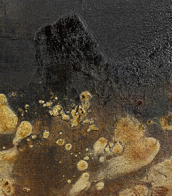
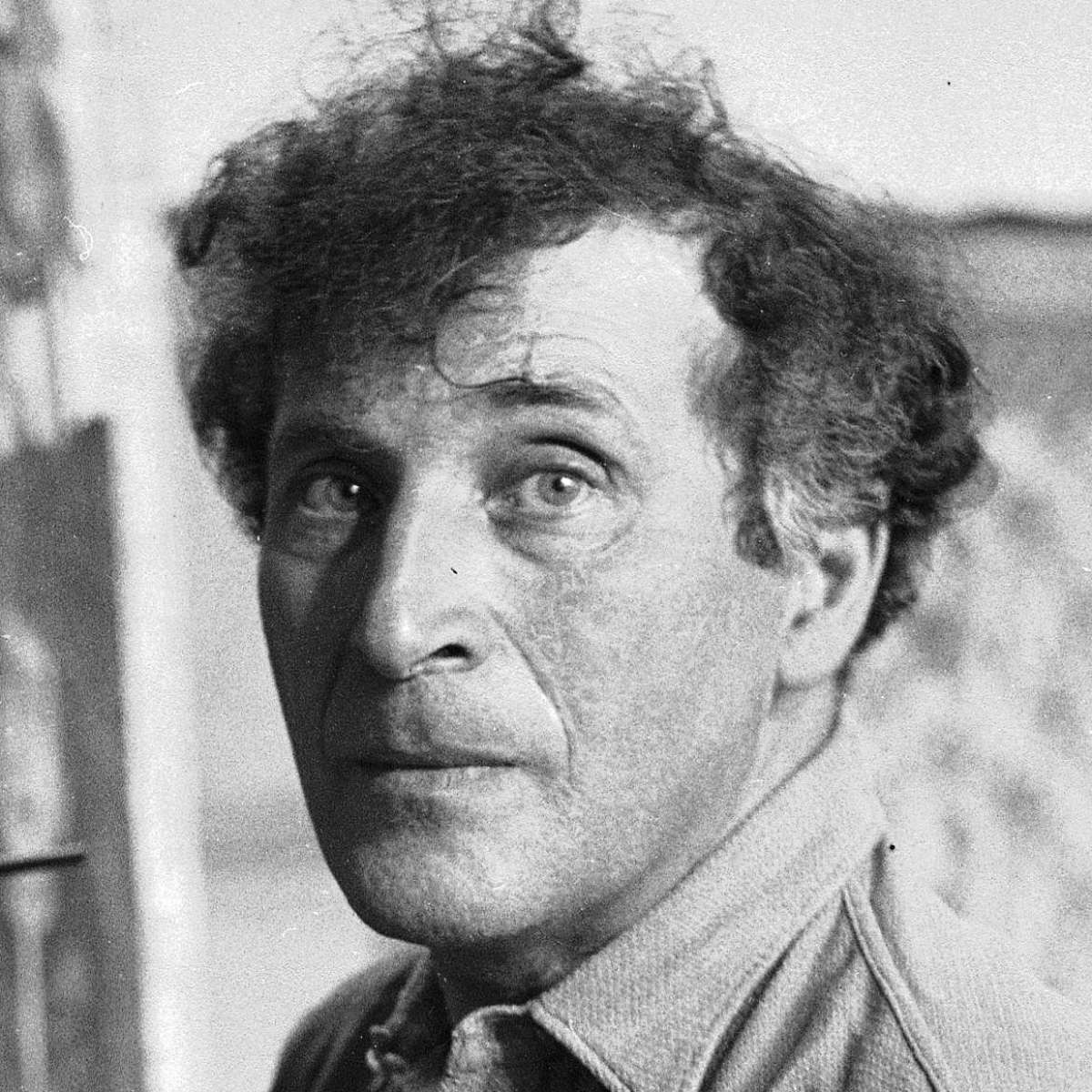
Marc Chagall (Russian: Марк Заха́рович Шага́л), born Moishe Shagal in 1887 near Vitebsk, Belarus (then part of the Russian Empire), was a Belarusian and French artist celebrated for his pivotal role in the avant-garde movement and his unique integration of Eastern European Jewish culture into modern art. His contributions spanned several artistic formats including painting, stained glass, stage sets, ceramics, tapestries, and fine art prints. Chagall's early modernist tendencies were enriched by his experiences across Saint Petersburg, Paris, and Berlin before World War I, leading to a distinctive style that melded Cubism, Symbolism, and Fauvism with his Jewish heritage.
Chagall's work is recognized for its emotional depth, often exploring themes of love, memory, and Jewish folklore through vibrant colors and dreamlike imagery. Notably, art critic Robert Hughes described him as "the quintessential Jewish artist of the twentieth century," a sentiment echoed by art historian Michael J. Lewis who regarded Chagall as a significant figure within European modernism and as the world's preeminent Jewish artist of his time.
Among Chagall's famed contributions are his stained-glass windows for the cathedrals of Reims and Metz, the UN, and the Jerusalem Windows in Israel. His monumental paintings include parts of the ceiling of the Paris Opéra and works that explore biblical themes, a hallmark of his oeuvre that underscores his enduring engagement with spiritual and religious motifs.
For art collectors and antiques experts, Chagall's works are notable not only for their artistic innovation but also for their rich cultural and historical significance. His art is housed in many prestigious museums worldwide, including the Marc Chagall National Museum in Nice, France, which focuses on his works inspired by religion and houses the series of paintings illustrating the biblical message.
For those interested in exploring Chagall's legacy and the vibrant intersection of culture, art, and history his work represents, signing up for updates on new product sales and auction events related to Marc Chagall can provide invaluable insights and opportunities. This is an invitation to engage more deeply with the world of art and culture that Chagall so uniquely encapsulated in his work.
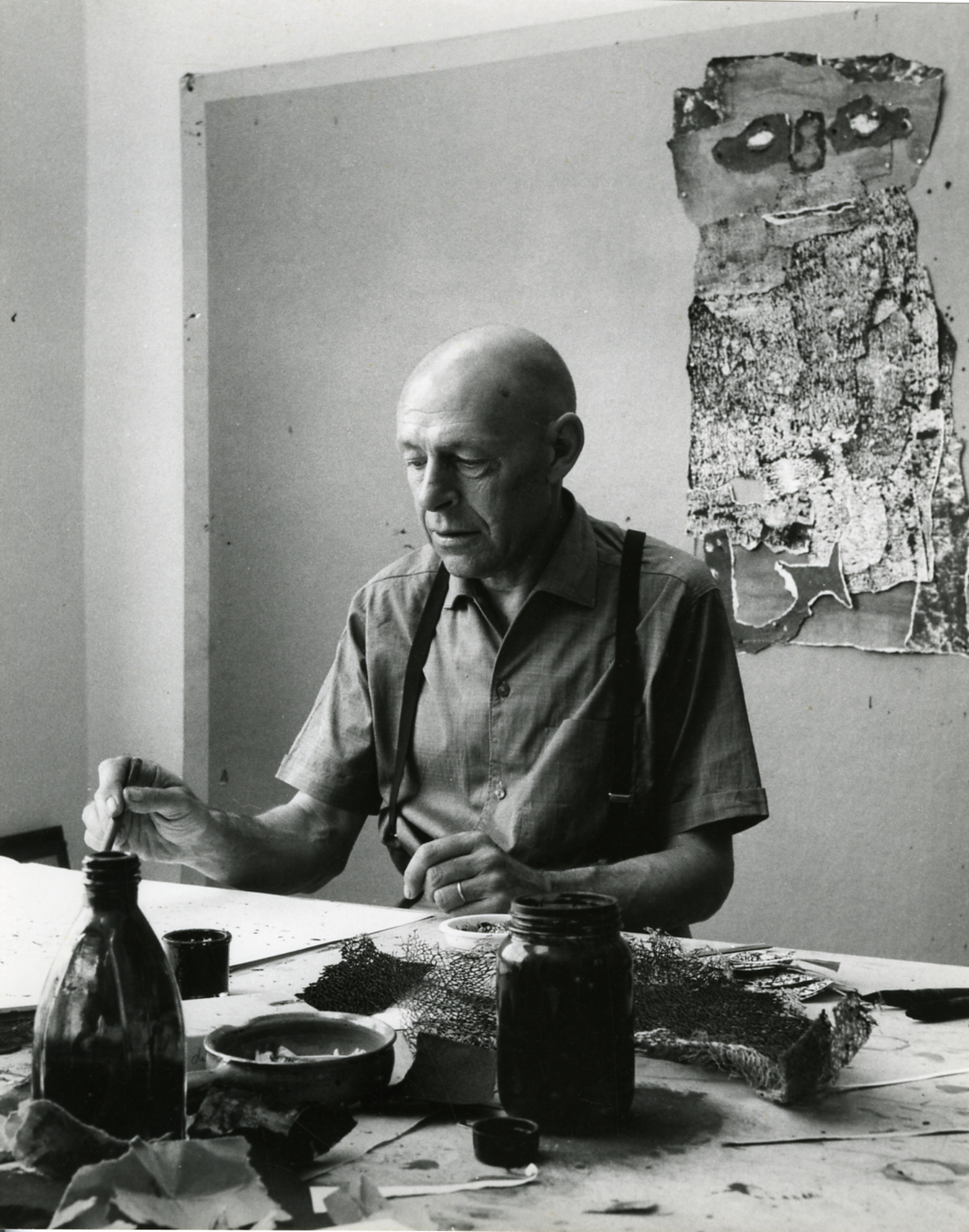
Jean Philippe Arthur Dubuffet, a pioneering French painter and sculptor, revolutionized the post-war art scene with his radical Matterism movement. He defied the conventional aesthetics of his time, championing "low art" and propelling a more genuine, humanistic image-making approach.
Dubuffet, born in Le Havre, France, in 1901, was a prominent figure at the Ecole de Paris and an advocate for Art Brut, or "raw art", which sought to capture art's purest form. His works were characterized by a rough, unrefined aesthetic, which eschewed academic norms in favor of spontaneity and authenticity.
Art enthusiasts and experts can view Dubuffet's innovative works at institutions like the Museum of Modern Art, where his legacy as a groundbreaking artist continues to be celebrated. His Matterism philosophy has left an indelible mark on the art world, inspiring generations of artists to embrace the beauty in the unconventional.
For those interested in the avant-garde and the legacy of Jean Philippe Arthur Dubuffet, sign up for our exclusive updates. This service is designed for connoisseurs and professionals in the art and antique sector, promising alerts on new insights and events strictly related to Dubuffet's profound influence.
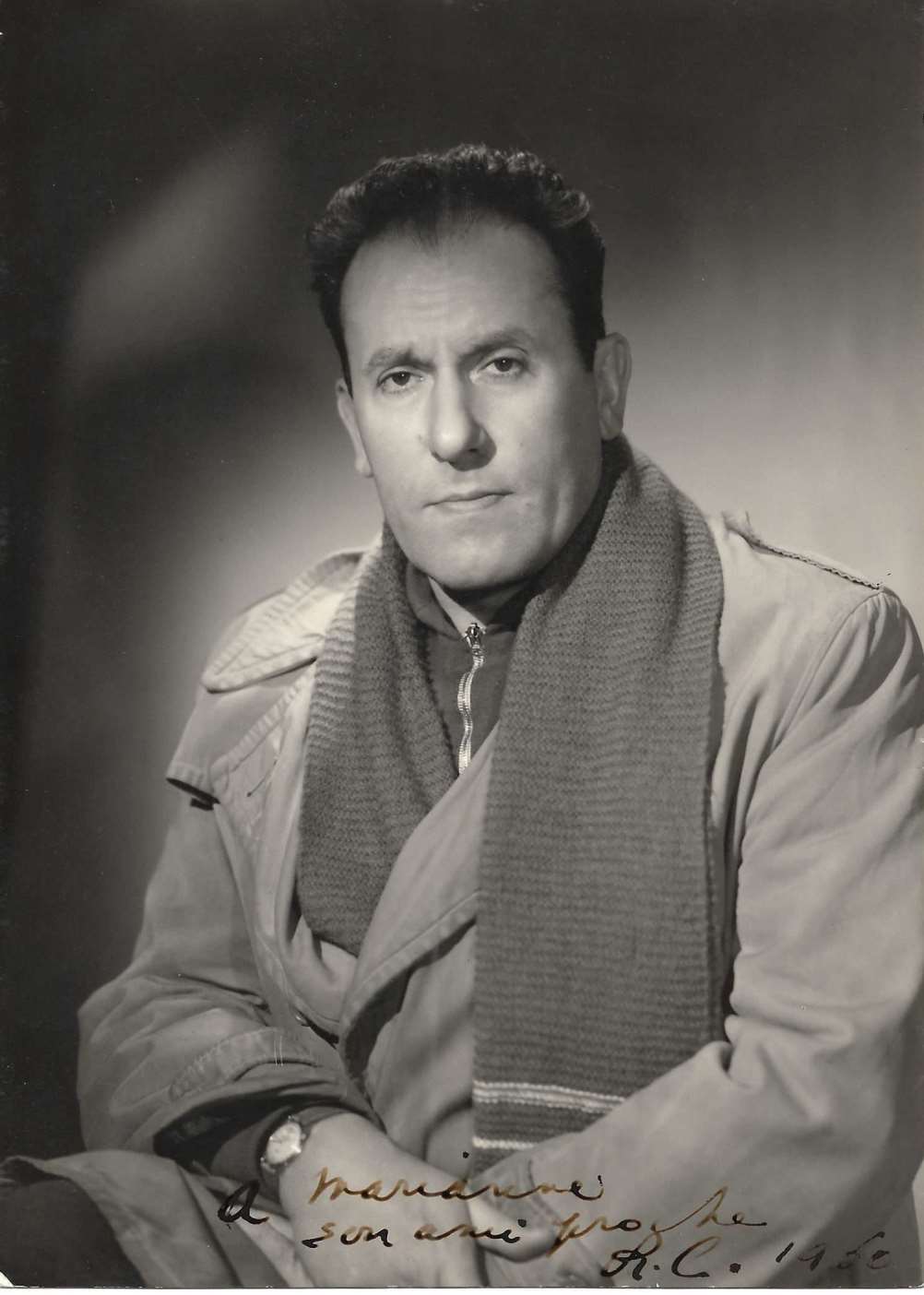
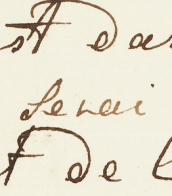

JR (French: Jean René) is the pseudonym of a French photographer and artist who does not give his full name. He lives and works in Paris and New York.
He describes himself as a "photograffeur" (photographer and graffiti artist in one word) and claims that the street is "the biggest gallery in the world". His work is flyposting large black and white images in public spaces. JR works at the intersection of photography, street art, filmmaking and social activism. Over the past two decades he has developed many public projects in cities around the world, from buildings in the slums of Paris to walls in the Middle East and Africa or favelas in Brazil.
JR places large-scale photographic images in public spaces. He started creating graffiti as a teenager on the streets and rooftops of Paris and on the subway. In 2007, he gained worldwide attention by placing huge photographs of Israelis and Palestinians face to face in eight Palestinian and Israeli cities on both sides of the separation barrier. In his works, the photographer always addresses current political and social issues in the world. For example, in 2019, JR worked with a group of inmates of a maximum security prison in California and created a large format piece with portraits of the inmates.
JR has traveled to many cities with his work, participating in exhibitions, he has collaborated with magazines and created films about his work. JR has also directed three feature-length documentaries, one of which, Women Are Heroes (2011) was nominated for an Oscar. At the 2017 Cannes Film Festival, he won the Golden Eye for Best Documentary.
